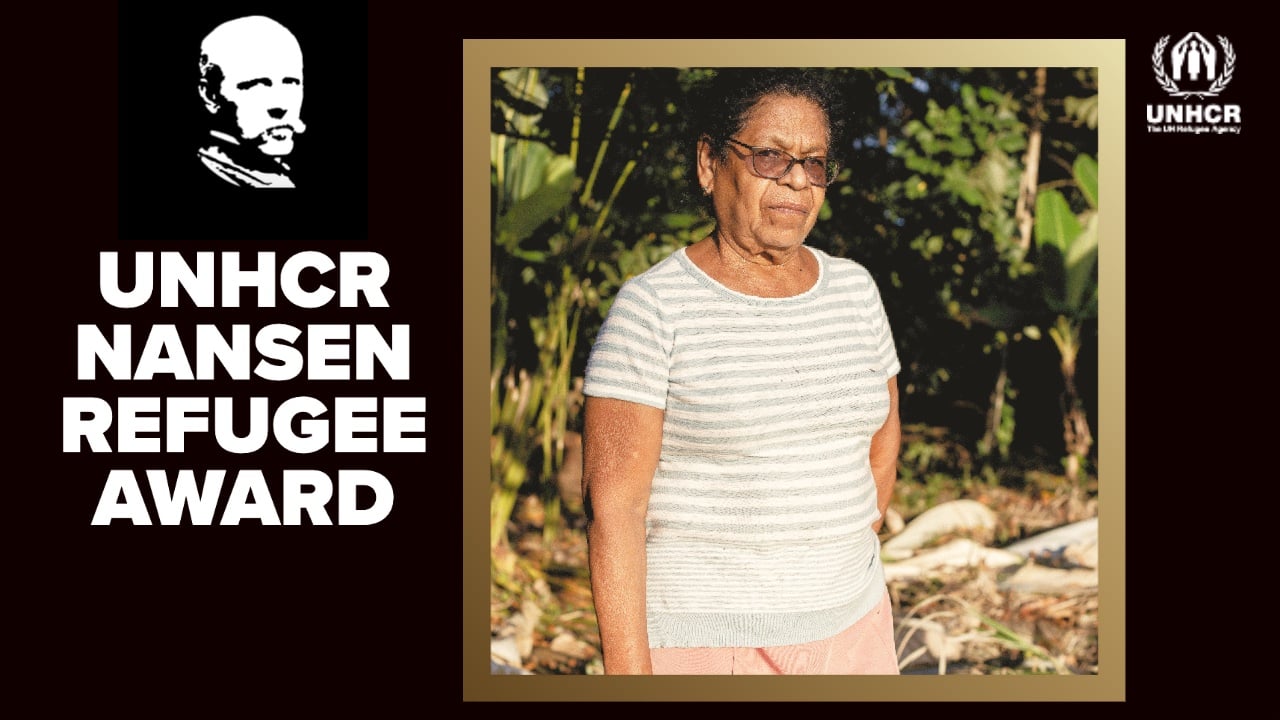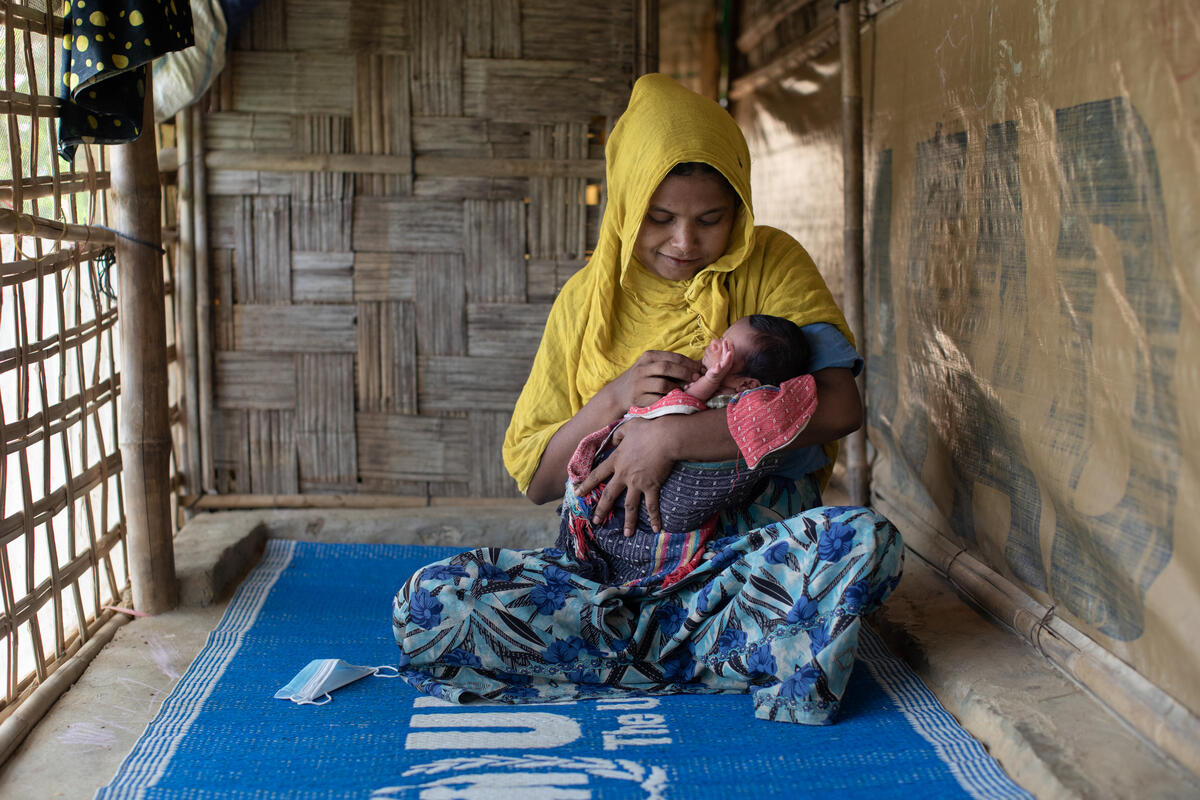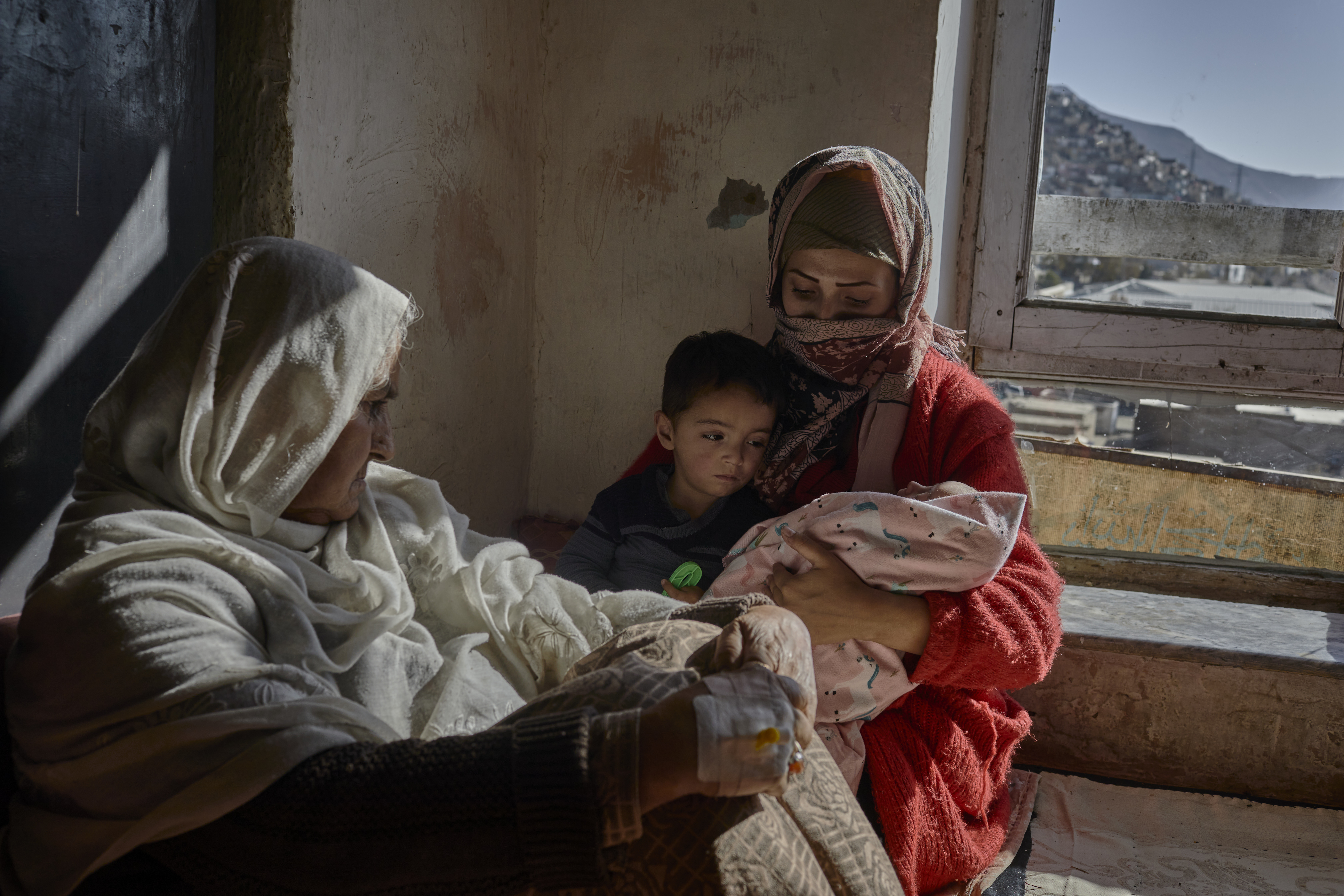Feature: Engaging men to help fight violence against refugee women
Feature: Engaging men to help fight violence against refugee women

DADAAB, Kenya (UNHCR) - Since she fled her war-torn homeland more than 10 years ago, Somali refugee Zahara Mohamed Ali has learned a brutal lesson: "When you are a refugee, you become subject to all kinds of violence. You can always be mistreated."
Unfortunately, the sexual attacks by soldiers, border guards, bandits and others that women refugees encounter before and during their flight do not always end when they reach a refugee camp. Refugee women can be attacked while collecting water or firewood, and they can be abused by their own husbands, who may be frustrated at losing their traditional role of provider for their families.
In Dadaab, a complex of three camps run by the UN refugee agency in north-eastern Kenya, refugee women like Zahara are taking an active role in combating violence against themselves. She is one of 22 members - men as well as women - of the Committee Against Violence, which educates refugees about sexual and gender-based violence, and counsels survivors. Zahara's committee is in Hagadera camp; similar ones exist in the other two camps that make up UNHCR's Dadaab complex, just 80 km from the Somali border.
The refugees decided to form the committee in 1998 after what one member calls "ugly, consistent violence" against women. It was originally called the Anti-Rape Committee, but broadened its focus after early successes in cutting down the number of rapes in the camps. "They said, 'why are we limiting ourselves to anti-rape, when there are so many other kinds of violence against women in the camps?'" recalls June Munala, UNHCR assistant protection officer in Dadaab, who works closely with the committees.
The refugee agency has found that it is vital to get refugees themselves to take the lead in deterring violence against women, says Chansa Kapaya, UNHCR's senior advisor on women for the Great Lakes, East and Horn of Africa. Committees like the ones in Dadaab "have become a standard way of mobilising refugees to become involved in the prevention of and response to sexual and gender-based violence".
Members of such committees receive training in counselling and paralegal work, and work together with non-governmental organisations like CARE in the camps.
"We are breaking through the silence of women who are raped, who are afraid to go to hospital or share their problems with others," says committee member Mumina Migag Bare. Survivors of rape are brought to the committee's office, where "we give them counselling, boost their morale and try to share their grief". In addition to counselling rape survivors and encouraging them to report assaults to police, "we are teaching women to stand up for their rights", she adds.
Prosecution in local courts underlines the message that rape is illegal in Kenya, members of the committee say. "We are succeeding in getting more victims to go to the police," adds Deka Abdi Ahmed, the CARE representative who works with the Hagadera committee.
Along with other steps (such as UNHCR's donation of vehicles to the local police to allow them to increase patrols), the committee is credited with decreasing the number of rapes in and around the camps. "Rape cases have gone down drastically" in Dadaab, says UNHCR's Munala - from 25 in 2001 to 10 in 2002, in the three camps that house about 135,000 people.
Andrea Vonkeman, senior UNHCR protection officer in Dadaab, cautions that while the number of rapes has gone down, many other crimes against women go unreported. Zahara agrees that the refugee camp can be a breeding ground for violence against women and children: "The family doesn't have enough food, married couples don't have any income, so it creates conflicts between a man and his wife."
The involvement of men is key to any improvement in the situation, say committee members. "If a person has only one hand or two hands, which is better?" Mumina asks rhetorically. "Men and women can work together like two hands. There are places women can't go, and men can't talk to rape victims; we need each other to do the job."
"A lot of gender programmes started as 'women's issues'," says Kapaya, the UNHCR advisor, cautioning that if men are not involved, they can feel isolated, resentful and even accused.
"It has become very clear that men must be involved in gender programmes if they are to succeed because we are, after all, talking about both men and women, about power relations between men and women," she says. It is important to mobilise male activists to dismantle negative notions of masculinity and redefine new male values, she notes, adding, "Men should be part of the solution."
In Hagadera, men are taking the lead in trying to educate other men and act as role models. "I feel very sorry about wife-beating," says one male member of the committee, Abdihakim Ahmed Gabey. "We [men] really feel bad, because every person is a human being, and what is bad to you is bad to me."
Refusing to rest on its laurels, the committee still has lofty ambitions. "We will consider it a success when we see not a single woman raped and not a single woman beaten by her husband," says committee member Iswind Ibrahim Ahmed.
By Kitty McKinsey
UNHCR Regional Office in Nairobi








